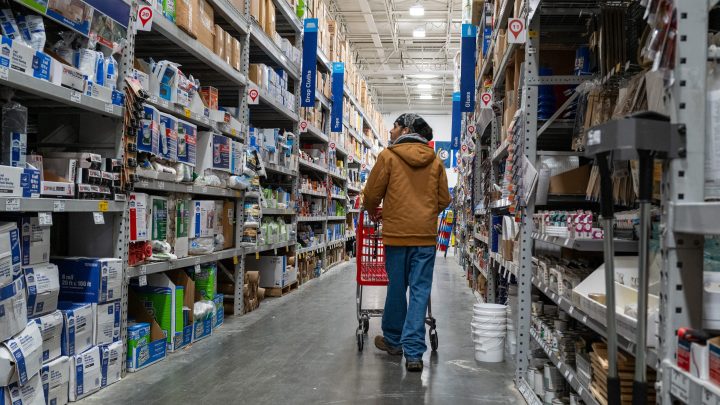
Consumer confidence grows, but the data has limitations

These days, the all-powerful consumer is feeling much rosier about the economy. The Conference Board’s Consumer Confidence index reached its highest reading in two years in January, yet another sign that the “vibecession” may be ending.
Of course, everybody vibes with the economy differently. So which consumers are feeling most confident?
In this diverse country, Don Moore with University of California, Berkeley’s Haas School of Business said any measure of consumer confidence is going to “oversimplify the rich and complicated reality that there are lots of different consumers living in lots of different realities.”
The complicated reality he sees from the Bay Area?
“Our booming economy has meant runaway housing prices, that mean gentrification and a lot of longtime residents being pushed out of their apartments,” he said.
He also said partisanship colors how consumers feel about the economy, as people turn to fewer neutral news sources.
“Americans tend to live in more politically polarized echo chambers,” said Moore. “Their sense of the economy is driven to a greater extent than it has in the past by their political partisanship.”
Even so, the Consumer Confidence Index for January found growing confidence among all age groups, especially folks 55 and over.
“They’re sitting on a lot of assets,” said John Diamond, director of the Center for Public Finance at Rice University’s Baker Institute for Public Policy.
Often, those are interest-bearing assets.
“They get the benefit of higher interest rates and having a stock of assets and earning interest on those assets and then seeing prices come down, I think has given them a little more certainty about how long their retirement savings will last,” he said.
The index also showed every income bracket became more confident, except for people making more than $125,000.
“There is no obvious signs of weakness,” said Aditya Bhave, an economist at Bank of America Global Research, which tracks consumer spending internally.
“Actually, lower income households are seeing faster spending growth on a year-over-year rate than higher income households,” he said.
With lower inflation and higher wages, people are slowly feeling better about how far they can stretch their paychecks.
There’s a lot happening in the world. Through it all, Marketplace is here for you.
You rely on Marketplace to break down the world’s events and tell you how it affects you in a fact-based, approachable way. We rely on your financial support to keep making that possible.
Your donation today powers the independent journalism that you rely on. For just $5/month, you can help sustain Marketplace so we can keep reporting on the things that matter to you.











